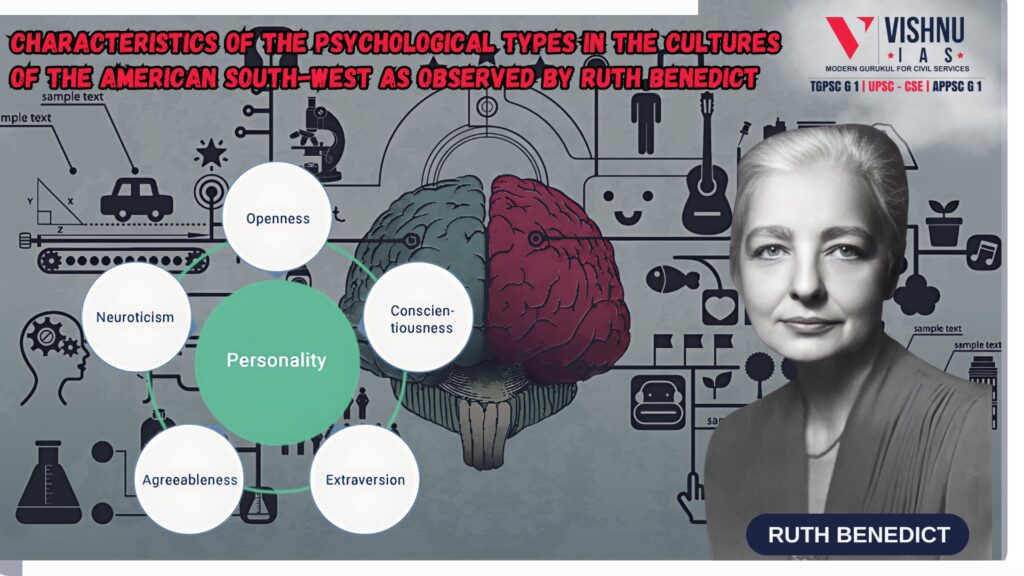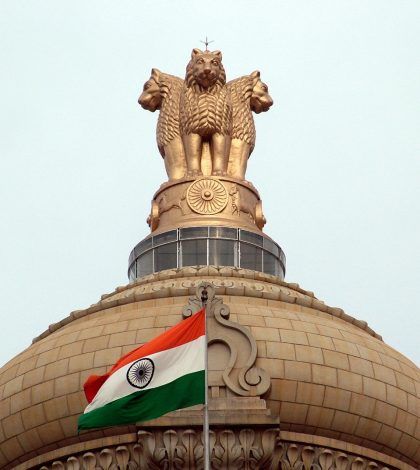Critically discuss the characteristics of the psychological types in the cultures of the American South-West as observed by Ruth Benedict.
⦁ Introduction: add few points regarding the Ruth Benedict
⦁ Body: add comprehensive analysis about the Psychological Types in the Cultures of the American South-West as observed by Ruth Benedict with critical evaluation
⦁ Conclusion: Add in terms of anthropological point of view
INTRODUCTION
Ruth Benedict, a prominent cultural anthropologist, explored the psychological types within the cultures of the American South-West, particularly focusing on the Pueblo Indians. Her work emphasized the interplay between culture and personality, contributing significantly to the field of anthropology.
BODY
Psychological Types in the Cultures of the American South-West: Ruth Benedict’s Observations
Here’s a critical discussion of her observations:
Key Psychological Types
⦁ Apollonian:
⦁ Characteristics: Benedict described the Pueblo Indians as embodying the Apollonian type, characterized by order, restraint, and harmony. Their culture emphasized moderation, communal harmony, and ritualistic precision.
⦁ Cultural Practices: The Pueblo Indians’ rituals and ceremonies were highly formalized and structured, reflecting their preference for stability and predictability.
⦁ Impact on Personality: This cultural pattern fostered personalities that valued conformity, self-control, and a collective sense of identity.
⦁ Dionysian:
⦁ Characteristics: In contrast to the Apollonian type, the Dionysian type is marked by emotional expressiveness, spontaneity, and a quest for ecstatic experiences.
⦁ Cultural Practices: While not as prevalent in the Pueblo culture, Benedict noted that other cultures in the South-West exhibited Dionysian traits, such as more spontaneous and emotionally charged rituals.
⦁ Impact on Personality: This type encouraged individuals to seek intense experiences and express their emotions freely, often leading to a more individualistic and dynamic personality.
Cultural Context and Psychological Types
⦁ Ritual and Formality:
⦁ Pueblo Indians: Benedict highlighted the Pueblo Indians’ emphasis on ritual and formality, which permeated all aspects of their life. This cultural trait was seen as a way to maintain social order and cohesion.
⦁ Comparison: In contrast, other South-Western tribes might have fewer rigid structures, allowing for more personal expression and variability in social roles
⦁ Social Harmony vs. Individual Expression:
⦁ Pueblo Indians: The Apollonian type’s focus on social harmony often meant that individual desires and expressions were subordinated to the collective good.
⦁ Other Tribes: Cultures with Dionysian traits allowed for greater individual expression, which could lead to more social dynamism but also potential conflicts.
Critical Evaluation
⦁ Cultural Relativism:
⦁ Strength: Benedict’s approach emphasized cultural relativism, arguing that no culture is inherently superior to another. This perspective was crucial in challenging ethnocentric views and promoting a more nuanced understanding of cultural diversity.
⦁ Limitation: However, her typologies can sometimes oversimplify the complexities within cultures. Not all individuals within a culture fit neatly into these psychological types.
⦁ Holistic Understanding:
⦁ Strength: By linking cultural practices with psychological traits, Benedict provided a holistic understanding of how culture shapes personality. This approach has been influential in both anthropology and psychology.
⦁ Limitation: Critics argue that her focus on cultural patterns might overlook the role of individual agency and the diversity of experiences within a single culture.
⦁ Methodological Rigor:
⦁ Strength: Benedict’s detailed ethnographic work and her ability to synthesize cultural observations into broader psychological types were groundbreaking.
⦁ Limitation: Some scholars have pointed out that her reliance on secondary sources and the potential for observer bias could affect the accuracy of her conclusions.
CONCLUSION
Ruth Benedict’s exploration of psychological types in the cultures of the American South-West provides valuable insights into the relationship between culture and personality. Her work underscores the importance of cultural context in shaping individual behaviours and social norms. While her typologies offer a useful framework, it is essential to recognize the diversity and complexity within cultures. Benedict’s contributions continue to influence contemporary anthropological thought, promoting a deeper appreciation of cultural diversity and human psychology.
Anthropology Full Course at Vishnu IAS Academy
What does Course Offer?
- 4 Months (250+ Class Hours)
- Online (App + Web) / Offline / Hybrid Mode of Classes
- Live + Recorded Videos Access For 1 Year
- 2 Hour Live Class From Monday to Saturday (1.5 Hours for Class + ½ Hour for Doubt Solving)
- Foundation to Advanced Level of Teaching
- Simple and Integrated Content
- One Stop Solution Books
- Regular Value Added Content
- Current Affairs & Case Studies Modules
- Daily Answer Writing Practice
- Weekly Grand Tests On Sundays & Evaluation With Guidance and Topper Will be Rewarded
- 500+ Model Answers
- 9 AM – 9 PM Support System
- Free GS Current Affairs
- Free Interview Guidance for Anthropology


